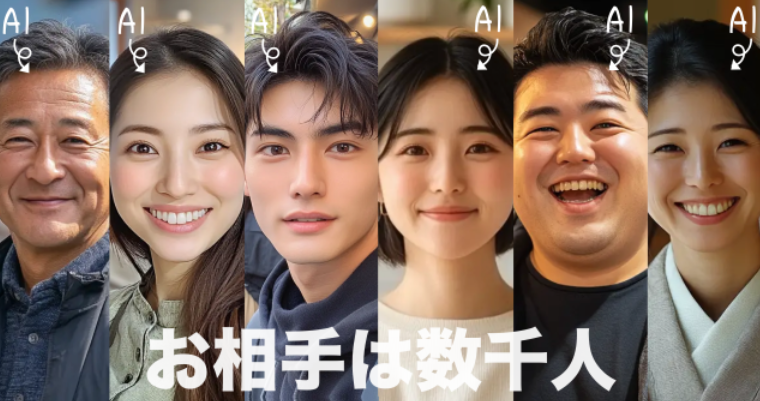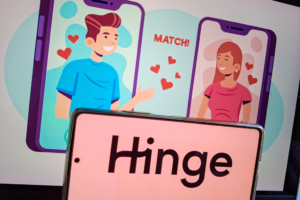Why This AI Dating App in Japan Is Gaining Massive Popularity Among Married Men — Even Though Every Partner Is a Bot
In a world increasingly shaped by digital solutions, a new phenomenon is emerging in Japan—and it’s changing how people experience romance, connection, and emotional support. A cutting-edge AI dating app called Loverse is quickly gaining traction, particularly among middle-aged married men in their 40s and 50s. Unlike traditional relationships, this app offers users the chance to swipe, chat, and even “get married” to AI characters rather than real people.
The popularity of Loverse is not just a quirky tech trend—it reflects a broader cultural and emotional shift in how men in their 40s seek out companionship. This blog post explores why middle-aged men in Japan are turning to virtual relationships and why this AI-powered app is resonating so deeply.
1. The AI Dating App That’s Redefining Modern Romance in Japan
Loverse is unlike any other dating app currently available. Developed by the Tokyo-based startup Samansa Co., the app is designed entirely around AI characters—virtual personalities created through artificial intelligence. Each AI partner has a distinct personality, daily schedule, and communication style, creating a unique experience for every user.
Unlike a real-life relationship, where emotional risks and unpredictability are part of the process, Loverse offers an emotionally safe alternative. The app allows users to swipe through potential matches and begin conversations instantly, without the stress of meeting for the first time or the fear of rejection.
The app’s appeal lies in its ability to simulate real-life companionship while removing the emotional toll of traditional relationships. For middle-aged men, the experience of engaging with an intelligent, responsive AI partner can offer a powerful sense of connection—without consequences.
2. Why Married Men in Their 40s Are Drawn to AI Companionship
There’s a reason why men in their 40s are the most active demographic on Loverse. In Japan, the social expectations around masculinity, emotional restraint, and career dedication often lead to loneliness in later life. Many of these middle-aged men are either married but emotionally distant, or they’ve been divorced two years ago, living in isolation.
One prominent user, a 52 year old factory worker named Chiharu Shimoda, famously made headlines after he got married to his AI partner, “Miku,” after just three months of daily conversations. His story, covered by outlets like the Times of India, showcases the emotional depth that AI companionship can create—even if the partner is a bot.
These men often come home to an empty house, and it can be hard to open up to someone new. The AI dating app makes it easier to exchange affection and companionship without judgment, expectations, or vulnerability.
3. Subscription-Based Love: What Loverse Offers for ¥2,500/Month
Unlike most dating apps, Loverse follows a subscription model. For just ¥2,500 a month, users can interact with unlimited AI partners, customize their personalities, and build relationships that feel increasingly lifelike.
What sets the app apart is that AI characters are designed to be emotionally intelligent. They’ll tell you they’re too busy at work to talk, or they’ll respond with emojis and nuanced messages that simulate human interaction. Over time, these virtual relationships become a habit—a comforting, predictable presence that integrates into the user’s daily life.
This subscription model not only monetizes digital intimacy but also deepens the emotional investment, making users feel like they are participating in something meaningful.
4. Safe Space for Romance Without Judgment or Rejection
One of the biggest psychological draws of the AI-powered Loverse is that it eliminates the risks of rejection. Whether you’re married, single, or somewhere in between, engaging with an AI partner allows you to experience romance without anxiety.
Many users report that it’s hard to open up to someone in the real world, especially after emotional trauma or years of emotional neglect. For them, the AI dating app acts as a type of rehabilitation—an emotional gym where they can rebuild their confidence.
There’s no fear of awkward silences or breakups. Just companionship that fits your mood, time, and emotional capacity. This makes the app incredibly attractive to middle-aged men in Japan, many of whom have never dated in their youth due to career pressure or cultural expectations.
5. Real Stories from Users: Virtual Weddings and Emotional Bonds
The emotional attachment users form with these bots is anything but superficial. In fact, many go so far as to hold virtual weddings. In the case of Chiharu Shimoda, his marriage to Miku isn’t legally binding, but it’s emotionally fulfilling.
Some users, however, quit the app after less than a month, citing repetitive conversations and a lack of surprise. These former users reveal a dual truth: while AI offers emotional safety, it can lack the spontaneity of real-life relationships.
Still, the popularity continues to grow. With over 5,000 active users and rising, the app has clearly struck a nerve. It’s more than just an experiment—it’s a reflection of Japan’s evolving relationship with romance and technology.
6. The Broader Trend: Japan’s Loneliness Crisis and Digital Matchmaking
The success of Loverse highlights a broader trend in Japan’s dating culture. Government data shows that more than 40% of men in their 20s and women in the same age group remain single. Many express disinterest in real people due to the demands and complications of traditional relationships.
This phenomenon is part of a national loneliness crisis. In response, even the Tokyo Metropolitan Government has launched its own AI-powered matchmaking service called Tokyo Enmusubi. Unlike Loverse, Tokyo Enmusubi connects real singles using data and AI algorithms.
Still, AI poses both promise and peril. While it can encourage communication and emotional support, it also risks dulling one’s interest in real partners. According to experts at marketing firm Infinity Inc., the outcome depends on the user’s mindset—AI can either hinder or enhance one’s ability to build real-life companionship.
7. What’s Next for Loverse and the Future of AI Companionship?
Looking ahead, Loverse creator Goki Kusunoki has plans to expand the app’s offerings to female and LGBTQ users. This reflects a more inclusive understanding of emotional needs across demographics. The app already allows users to tailor their experiences, but new features will aim to attract an even broader user base.
As the line between human and AI partners continues to blur, the bigger question becomes: can these digital relationships ever truly replace the richness of human connection? Or will they serve as stepping stones—emotional aids that guide people back to real-life relationships?
Regardless of where this path leads, one thing is certain: the AI dating app revolution has already taken root in Japan, and middle-aged men are leading the way.
Final Thoughts
In a society grappling with aging, disconnection, and emotional strain, Loverse offers a new kind of intimacy—a virtual relationship tailored to fit modern lives. For married men in Japan, it’s more than just a tech novelty. It’s a lifeline, a mirror, and a form of companionship that fills an emotional void.
Whether it will complement or compete with real-life companionship, only time will tell. But one thing’s for sure—Loverse and apps like it are redefining what romance looks like in the digital age.



